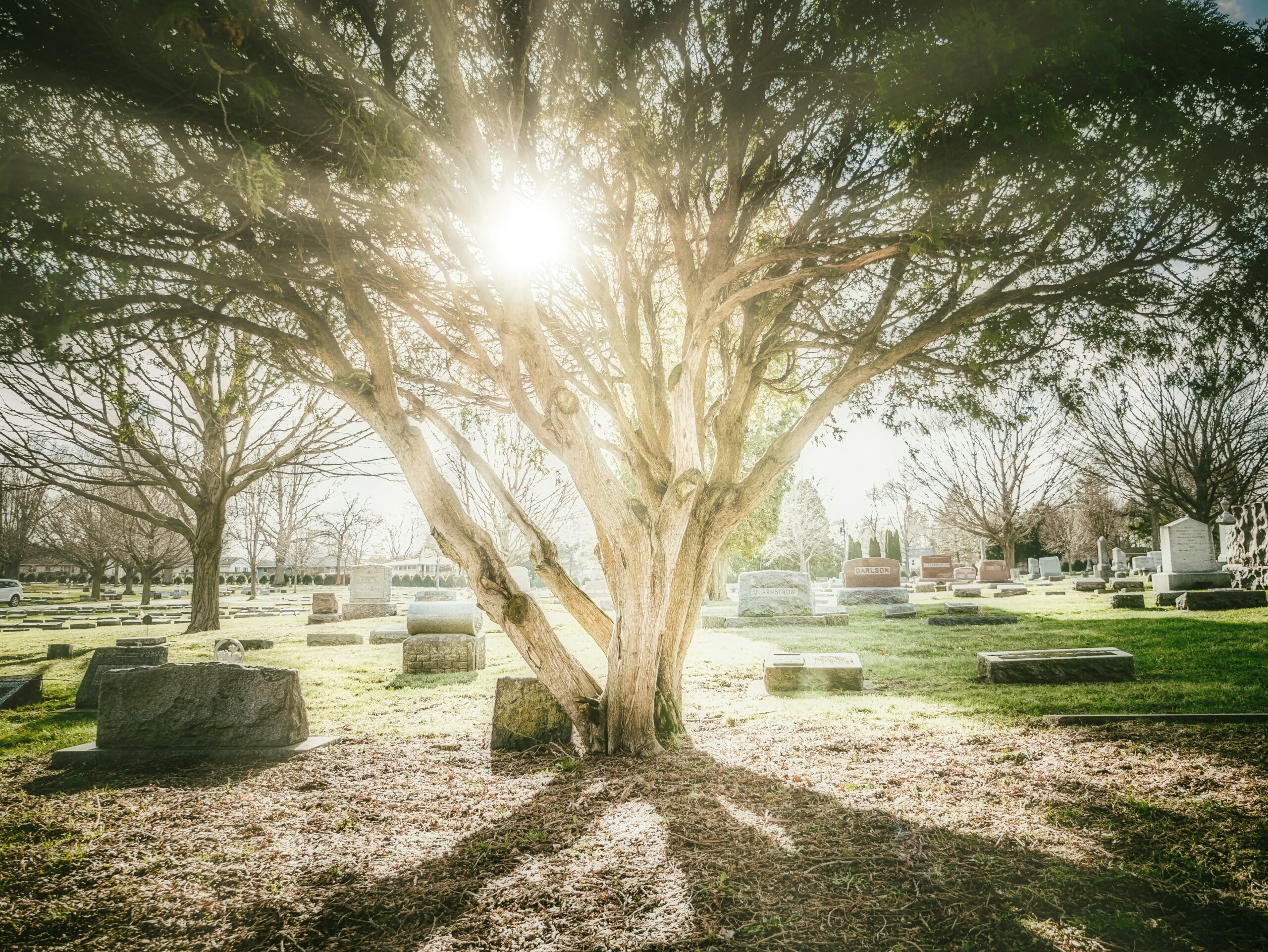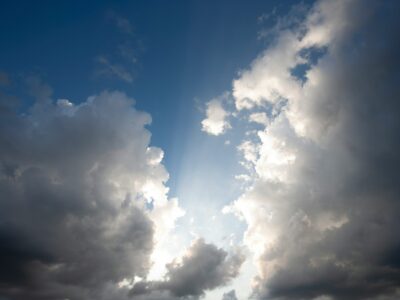In the traditional liturgical calendar, Ash Wednesday marks the beginning of the Lenten season and also marks the foreheads of countless Christians with crosses. It’s a solemn, holy day of prayer and fasting intended as a day of repentance, or turning back, to God. The ashes of Ash Wednesday are a sign of grief and humility as well as an acknowledgment of our own mortality.
Most people don’t spend their days thinking about the brief time we have here on Earth, but it is a universal reality. “Dust you are and to dust you will return,” God told Adam in the garden of Eden (Genesis 3:19b NIV).
Keeping death ever before us (memento mori or “remembering death”) is an ancient Christian practice that modern Christians aren’t super inclined to embrace. I’m quite a bit more content to push off the inevitability of death and pretend like I’m going to live forever, thankyouverymuch.
But Scripture is filled with promises and reminders about our fleeting nature. Take Isaiah 40:6-8:
A voice says, “Call out.”
Then he answered, “What shall I call out?”
All flesh is grass, and all its loveliness is like the flower of the field.
The grass withers, the flower fades,
When the breath of the Lord blows upon it;
The people are indeed grass!
The grass withers, the flower fades,
But the word of our God stands forever.
Isaiah 40:6-8 (NASB)
It almost seems as if death isn’t just inevitable; it’s by God’s design, which might even make it good.
*gasp*
I wish I could remember when I first read an argument for the goodness of death, as part of creation and not a consequence of human fallenness, but I can’t seem to track it down. I only remember the eye-popping and heart-stricken sense I got trying to process the goodness of death, good ol’ death, the gift of mortality.
But it was the beginning of a dramatic change in the way I viewed the world.
What if death—that subject we avoid like the plague—is one more gift from a generous God?
Everything Alive Relies on Something Else’s Death
Think about it—everything, from humans to hydrangeas to hummingbirds, can’t survive unless something else dies.
When Jesus told his disciples, “Greater love has no one than this, that a person will lay down his life for his friends” (John 15:13 NASB), he knew that love and sacrifice were already baked into all of creation. To love anything is to give something of yourself over to it. God designed the entire world to rely on each other to flourish.
In order for me to enjoy fish and chips this Friday, a fish had to lay down its life. A potato had to be dug from the dirt. Olives had to be plucked from a tree and squeezed. Wheat had to be dried and cut and ground. These were all living things, once, and their death lets me live.
The very heart of Christianity is summed up in the cycle of birth, death, and resurrection. If we look, reminders of God’s gift can be found every single day, in every meal, across all of creation.
Without death, there is no resurrection.
From Dust to (Regenerative) Dust
But let’s not get too heavy-handed with our spiritual metaphors about creation, sacrifice, and resurrection. Creation itself benefits from death, even without my theologizing.
Decomposing organic matter enriches our soil with organic nutrients, which improves the soil’s fertility. Healthy soil means healthy plant life, both in agriculture as well as global ecosystems.
In agriculture, the death and decay of previous crops contributes to the renewal and rejuvenation of the soil.
In forests, fallen trees create a habitat for microorganisms like fungi and bacteria, which are responsible for breaking down the wood and recycling its nutrients back into the soil.
Dying plants and organic matter contribute to the nutrient cycling in prairie ecosystems, which also sequester carbon, improve soil structure, aid in seed germination and plant growth, and serve as habitats for decomposers and other animals.
Even oceans need the plants and animals in them to die in order to remain healthy. The natural decomposition of organic matter in oceans builds ecosystem resilience. It transfers energy from dead organisms to living ones. It creates microhabitats and serves as substrates for algae and small invertebrates to grow and thrive.
God created all of these systems as fully regenerative. Nothing in the natural world ever goes to waste. He’s the King of Recycling!
There’s Such a Thing As Too Much of a Good Thing
When wolves, the apex predator of Yellowstone National Park, were driven out of the land a century ago, people thought it was a good thing. No more of those vicious beasts killing the cattle and sheep!
But when you remove one species from an ecosystem, the ecosystem is thrown out of balance. There aren’t just more elk and deer, there are too many elk and deer. And too many elk and deer overrun the meadows and new saplings, which can’t establish any footing because all the ungulates keep eating them. Not enough trees means fewer habitats for other creatures. Soon, the biodiversity in the park suffers.
This hasn’t just happened in Yellowstone; it happens in overfished lakes, waters stripped of sharks, and more.
The planet needs this population control to maintain biodiversity balance and sustain life.
It Would Have Been Really Bad If Adam and Eve Ate from the Tree of Life
What would be so bad about living forever?
Humans are distinct enough from the rest of creation, what with our ability to sit here and ponder our distinctiveness, manufacture slime and slinkies, and postulate about God’s design.
It was enough to know the difference between good and evil. It would suck to live forever.
We probably wouldn’t even be here. Global resources would have been depleted thousands of years ago if humans lived forever.
With no population turnover, there’s no space for generational change, no ability to adapt to an evolving environment. Don’t believe me? Just ask anyone over the age of 70 about how much they long for the good ol’ days. Youth generates ingenuity, innovation, and change.
Plus, imagine how bored we’d be if we lived forever? When my great-grandma was in her final days, Alzheimer’s made her loop through a common refrain: “I should be in the ground, pushing up daisies!” She was bored! There wasn’t anything left for her old brain and bones to do. I’m 41, hopefully less than halfway to the finish line, and I’m already a little overwhelmed about how I will fill my next forty years with purpose and meaning. I already assemble puzzles. I already watch birds. What am I going to do when I’m 82?!
In the book and film by the same name, The Green Mile, Paul Edgecomb lives in excess of 100 years. Paul speculates that it’s a curse from God for his part in John Coffey’s execution. Why is it a curse to live longer?
Because death puts a cap on human suffering.
The fleeting nature of our existence doesn’t dilute the goodness of God but instead seems to illuminate the care God has for us.
If I focus on the present and keep the reality of my eventual demise ever before me, it frames the wonder of this present moment. I get to be alive, I get to breathe the breath of life, I get to participate in this great interconnected miracle of give-and-take. What a gift.





 Copyright
2024
Root and Vine
Copyright
2024
Root and Vine